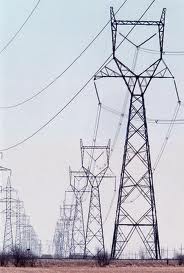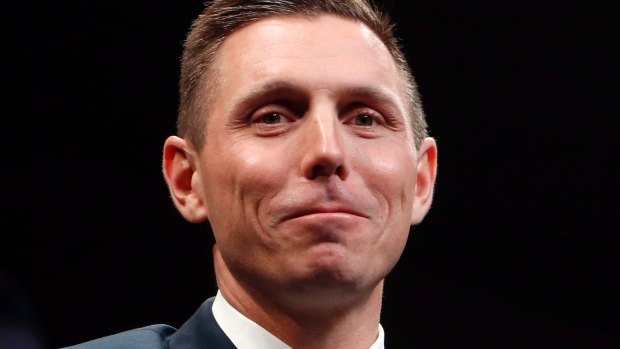 By Ray Rivers
By Ray Rivers
October 27, 2017
BURLINGTON, ON
If Kathleen Wynne’s Liberals are not re-elected come the provincial election next year, it will partly be because of how the Liberals have managed and mismanaged the energy file. True enough there has never been a power blackout or even a brownout over their period of governance – as there had been regularly during the previous Harris/Eves government. But the price of electricity had been dramatically rising, at least until this past summer when it tumbled by a whopping 25%.
There are a number of reasons that account for why our hydro bills had been rising:
1. Neglected maintenance – During the Rae and Harris years electricity infrastructure, transmission in particular, had been sacrificed resulting in brown and black outs;
2. Privatization – New generation, whether renewable or conventional energy required long term contracts with fixed prices and guaranteed purchases;
3. Labour Costs – The utilities’ employees are among the best paid in the province, senior executives with Ontario Power Generator (OPG) and Hydro One in particular; and
4. Waste – Most memorable is the billion or so spent to cancel new gas plants still under construction, allegedly to save electoral seats in the GTA.

Maintaining the system has not always been the top priority – we end up paying for it eventually.
For a generation Ontario Hydro had typically debt-financed its operations, even before the Davis government. In fact when Mike Harris dissolved Ontario Hydro at the turn of the millennium he discovered an accumulated debt load of almost $40 billion, some $20 billion greater than the value of all of the utilities’ then current assets.
This stranded debt had been placed on our utility bills until more recently when the Liberal government eliminated it.
As rates started rising over the McGuinty/Wynne years, lower income families complained about how they couldn’t afford to pay their hydro bills, some businesses threatened to move out of the province, and even the left wing media were doing an almost daily grind on electricity prices. So early this spring the Premier responded to the criticism by taking out a mortgage, the way someone looking to renovate their house might do. She is using the borrowed money to cut electricity bills for small business and residential customers by 25%.
In a way it’s just turning the clock back. And it’s fair game for opposition politicians to call this a political pre-election move. It sure looks that way – trying to win votes by lowering hydro bills today and paying the piper tomorrow. It’s OK for the political parties to do that – call her out – but not Ontario’s Auditor General, Bonnie Lysyk who is supposed to be an independent officer of the legislative assembly. Instead she is acting like the king-maker James Comey did in the last US election.
The nub of her report is that it would have been less costly to finance the 25% rate cut by adding to the provincial debt rather than piling it onto OPG and its financing agency, because Ontario’s credit rating is better than OPG’s and the interest rate is lower. She is right to point that out but not to assign motive on behalf of the government – that is my job and the job of the opposition parties. And the government would likely respond that the debt should go to the rate payers rather than the general public – something she fails to note.

Former Premier Mike Harris was no friend of a “Best in the Business” hydro system.
The Ontario AG delivered another scathing report almost two years ago in which she decried the use of long-term fixed-price electricity supply contracts, but failed to offer any alternative as to how the system would work otherwise. It has been the provincial policy since the time of Mike Harris to bring on new energy sources through the private sector using long term supply contracts. And the private sector needs the security of a contract to ensure that it receives a fair return on its investments.
Again, she was right in pointing out that privatization had been a costly exercise. But somebody on her staff needed to take a course in micro-economics 101. She presented an imaginary $37 billion number, a purely hypothetical figure which might as well have been pulled from the air. But it is a complicated file, her strength is accounting not economics, and so her report then, as now, was only partly helpful.
Over the last decade Ontario’s energy costs climbed to be the highest in Canada – though still much lower than those in the major North American centres in California and New York. With the 25% reduction Ontario has fallen more in line with the other provinces. But of course it will never be able to compete with Quebec, Manitoba or BC. These jurisdictions have a tremendous advantage with their low cost water power endowment, and they have also retained their provincial monopolies to generate and distribute electricity reliably and cheaply.

Leader of the Opposition at Queen’s Ark – Patrick Brown
New Progressive Conservative leader Patrick Brown claims he’d tear up the province’s long term supply contracts, much as Dalton McGuinty promised to tear up the 407 lease Harris had signed years before him. It was simply not possible, the lawyers had sealed it well. And even if Brown were legally able to do that, how would he replace these contracts – how would he keep the electrons flowing and the lights on? I am one of the hundreds of Ontario residents who operate a small solar energy project under Ontario’s MicroFIT energy program. Without a reasonable assurance of market access and price no reasonable business entity is going to take a gamble investing in a public sector electricity system.
Brown is not someone to be underestimated. Over the relatively short period of time he has been provincial Tory leader, the former Harper disciple and MP, has moderated and adapted. In fact he has boldly reversed his view and position on abortion, same sex marriage and sex education in schools. And it has worked for him, he is now leading in provincial popularity with almost half those polled saying they would vote for him. He has been a strong and vocal critic of the Liberal government at Queens Park and on the electricity file in particular.
But if he is to become our next Premier he has to do more than just criticize – to tell us what he wouldn’t do. Brown, who had been promising to release his party’s long term energy plan several months ago, almost immediately pulled back from that promise until next year and the election. Indeed it would be very helpful for Mr. Brown to present a coherent alternative. After all it was his party who created this chaos in the first place by dissolving our relatively stable and low cost provincial electricity monopoly. He might want to look to Quebec, Manitoba or B.C. for inspiration.
 Ray Rivers writes weekly on both federal and provincial politics, applying his more than 25 years as a federal bureaucrat to his thinking. Rivers was a candidate for provincial office in Burlington in 1995. He was the founder of the Burlington citizen committee on sustainability at a time when climate warming was a hotly debated subject. Tweet @rayzrivers
Ray Rivers writes weekly on both federal and provincial politics, applying his more than 25 years as a federal bureaucrat to his thinking. Rivers was a candidate for provincial office in Burlington in 1995. He was the founder of the Burlington citizen committee on sustainability at a time when climate warming was a hotly debated subject. Tweet @rayzrivers
Background links:
Ontario 2003 Black-out – Bruce Nuclear Deal – Stranded Debt – Auditor General Report –
More AG – Large Renewable Suspended – MicroFit Valuation – Patrick Brown Energy Plan –



















Oh, come on Ray. We have been exporting our surplus energy at market prices and paying well above market prices to produce it.
Mike-thanks for that extensive and well thought through comment. You and I and the AG almost agree on the Fair Hydro plan – if they were going to go that route, and it wouldn’t be my recommendation, it should be funded the least costly way. My issue with the AG is that she is overstepping her role and politicizing her report by the way she is presenting the facts – a dangerous precedent regardless which party is in power.
While you and I and Gary have different recollections over power outages and brownouts I’d point out that the last time the provincial Conservatives were in power, they spent $900 million importing electricity over two years just to keep the lights on. Ontario, rather than paying other jurisdictions to take our power is a net exporter now, benefiting ratepayers to the tune of $230 million in 2015. (Source: Independent Electricity System Operator)
In term of disclosure, I also worked in the energy sector for a couple years as part of new management to reform one of the elements of the old Ontario Hydro into its new form – HydroOne.
Ray, you seem to be weaving your memories into a sympathetic perspective of your liberal clan and use that to justify a diatribe against the Ontario AG.
The point you made on brownouts is somewhat misleading as I don’t recall any actual brownouts occurring but there were several years in the hot summer days where the IESO called for people to reduce usage to get through the peak demand. The reason these have not continued is not increased power generation but reduced demand from big industrial users, like steel production which has moved out of the province. IESO info below shows the top 20 peaks days since the market was established in 2002 and you’ll see there are no dates in the last 10 years.
Electricity Demand Records
Below are the top twenty record demand days for the province of Ontario since the market opened on May 1, 2002.
Rank Date Ontario Demand (MW)
1 Tuesday, August 01, 2006 27,005
2 Wednesday, July 13, 2005 26,160
3 Monday, June 27, 2005 26,157
4 Monday, July 31, 2006 26,092
5 Monday, July 17, 2006 25,898
6 Tuesday, June 28, 2005 25,861
7 Monday, July 18, 2005 25,857
8 Wednesday, August 02, 2006 25,816
9 Tuesday, August 9, 2005 25,816
10 Tuesday, July 12, 2005 25,808
11 Tuesday, June 26, 2007 25,737
12 Thursday, August 02, 2007 25,584
13 Monday, July 11, 2005 25,506
14 Wednesday, June 27, 2007 25,467
15 Thursday, July 21, 2011 25,450
16 Tuesday, August 13, 2002 25,414
17 Wednesday, August 01, 2007 25,402
18 Thursday, July 21, 2005 25,383
19 Thursday, July 14, 2005 25,362
20 Monday, August 12, 2002 25,349
In fact, the increases from ‘green’ power generation has cost us 100’s millions of $ to pay other jurisdictions (i.e. U.S. states) to take the overage as we cannot properly manage it when the demand is not there.
Suffice to say your favoured Ontario liberal government has hugely botched the energy file since they came to power. McGuinty started it and Wynn has continued. I have no issue with the investment in ‘green’ energy generation but the government needs to have a plan which their professionals in HydroOne, OPG and the IESO provided them but they did not listen…for example that many changes to the transmission / distribution grids needed to be made to support the new model of ‘green’ generation from many small sites versus the established bulk generation from a handful of big generation sites (side note … The local grid needs major change to support all the electric cars they everyone will have in 10 years. Where is that plan?).
In terms of the long term contracts – that is one way to invest Ontarian’s hard earned tax $ but is wrong approach as it distorts the market pricing of electricity for years to come. McGuinty should have had the leadership to campaign on investing in this area and established an investment fund with the governance to do it. I would have voted for it. In a similar sense, Ontario should be getting fully behind the the development of Thorium nuclear power. We have lots of expertise that could be leveraged and given its promise, this along with renewables is the future of electricity generation.
I notice as well, you left out the Samsung contract which was rumoured to be $5 billion but no one knows as there has been no information released that I am aware as we still have the liberals in power.
Your stab at the credibility of the Ontario AG looks like an attempt to defend your brethren as they basically did something really dumb to again ‘buy’ their way back into power. A simple refinancing of the committed payments with some elaborate accounting, which is costing us extra, so they can say their budget is balanced. While this may be within the rules from their perspective, it is certainly not within the spirit. Seems we have a trend here with the other part of your brethren in Ottawa, whereby, by the way, the hallowed leader JT promised his ministers would ensure they went beyond the rules to ensure the spirit of conflict of interest and ethics were used by his senior management. It seems both the provincial and federal liberals come from the same school – do what I say, not what I do.
I could go one but I don’t see the need. If Ontarian’s are dumb enough to elect the Liberals into power again even as a minority it will be a sad omen for the future. They have run up the debt to $350 billion, making us the most indebted non-sovereign jurisdiction in the world. They continue to show they will spend anything to get elected and don’t care that they have to borrow to buy the votes. Interest rates being low have accommodated this all through their time in power. We are apparently going through good economic times which you would think means they should get the accounts into surplus and start paying off the debt but their addiction to being in power versus leading Ontario to a better future, warps their motivation and distorts the creation of sensible plans.
On the part of the other parties, I do agree with you. They need to stand up and position what they are for. Harris did and won big time because Ontarians choose his common sense approach. (I enjoy having the occasional beer on the golf course.) We need leadership like that again.
Ray:
I take it it’s not for nothing that you list “neglected maintenance” as dilemma number one. Not being familiar with power generation in Ontario (or in Canada generally), I’m left guessing that “water power” = generation of electricity via damming of rivers and other water-courses. And, thus, am left wondering how bad is maintenance at such generation facilities?
While maintenance covers a wide spectrum, looking at just one aspect, could you please comment on the projected long-term life of such facilities, if, for example, it is the case that siltation, which may be increasing (?) and, if so, will have a potentially profoundly negative effect on power-generation.
Thanks for your suggestion that pols–everywhere, eh?–need to get off the “I’m not so-and-so [the opposition]”; such did not work for Ms. Clinton is the U.S., I my view.
BB
Having worked in the energy sector briefly in late 1990’s I can tell you that Ontario Hydro was never a shining model of fiscal restraint or operating efficiency. It was a bloated, massive government bureaucracy populated by entitled technocrats in which featherbedding, excessive wage and benefit costs and exorbitant bonuses were the norm. That being said, the only thing Harris accomplished by breaking up Ontario Hydro was to create five bloated bureaucracies that were essentially mini-Hydros, most of whom were populated by former Ontario Hydro employees. Nothing improved, and nothing changed.
As for Wynne, her experiments with wind power have angered many voters in rural Ontario, and should be a contributing factor in her defeat next year. Going forward, if Brown manages to not blow his election chances like Tory and Hudak he needs to seriously look to Europe for more advanced energy forms such as co-generation plants and energy from bio-mass.
Let’s hope your headline is right. Electricity prices rose dramatically under Harris/Eves and they paid a price at the ballot box, just as surely as will her nibs.
I thought the take away from your much-maligned auditor was that the the province could have borrowed the money at a cheaper rate and saved $4 billion over the life of the loan.
I must say, I have little recollection of brownouts and blackouts during Harris and Eves time. So, having a faulty memory, I Googled that. Guess what, the only thing I found were stories related to the big North American blackout in 2003 which had nothing to do with government policy and practice and everything to do with an Ohio power plant gumming up the entire grid over Eastern N.A.
By the way, I loved your little household mortgage analogy. I have been told repeatedly by Keynesians, of which you are one, whenever I complained about government borrowing that I simply cannot judge it in terms of household budgets, because – wait for it- it is THE GOVERNMENT.
It’s only common sense that out of sight electrical costs will not only hurt, badly, the middle class, and down, but it will destroy business in Ontario. Major manufacturing like Ford, GM, Honda, etc, etc will flee south where electrical costs will be going, down, down, down. Even our lower dollar won’t save us. Perhaps instead of cancelling cheap reliable plentiful natural gas plants, we should be building more. Switching at this point in time to, totally unreliable, super expensive, solar and wind is going to be Ontario’s downfall.